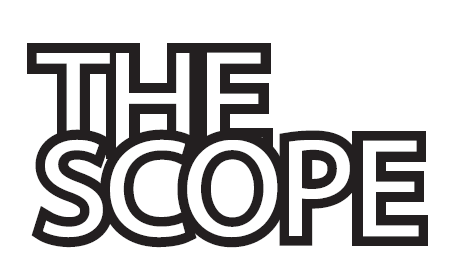Alcohol is killing us. Over 3,700 people died in 2018 here in Scotland from alcohol related causes. To put that in perspective we accounted for about half of the UK’s alcohol related deaths despite only making up about 8% of the UK population. Clearly, our community is not thriving. There must be something different about our lives here, the pressures and culture that has caused such a drunken society. It cannot be denied that it starts from a very young age. It is commonly believed that underage drinking is a problem for those who come from deprived areas, but in actual fact the majority of people in Scotland begin drinking under the age of 18. So we have to ask ourselves, what is going on here? Why are we losing so many to the effects of a drink? The truth is that the pressures young people face in our country are not properly dealt with which will often force them to turn to ‘bad behaviour’ to cope.
Maybe school isn’t stimulating, and when you get home your mum shouts at you for missing class. No chance are you doing your homework, it’s boring, and you don’t even know where it is. And you can only play on your xbox for so long before it becomes boring too. There’s nothing to do, everyday is the same, you are bored out of your mind all of the time. This is a scenario that many young people face that encourages them to take up drinking. They look to their peers to see how they are entertaining themselves, join in, experiment, socialise. They make friends through parties and drinking, causing them to positively associate alcohol with a world they otherwise view negatively. The world of drinking, misbehaviour, even drugs. But it’s their source of joy. However it’s not just boredom that drives this epidemic: it’s the struggle to communicate your stress, the fear of being different from your peers, and the desire to grow up quicker which contribute to this pro-alcohol culture.
Pressure on young people, boys in particular, is something very complicated. They struggle to express themselves and communicate in any healthy manner. Many boys become angry, even violent, easily but it is often because they feel unlistened to or ignored. For many, under the influence of alcohol is the only time they feel like they can express their feelings and connect with others. Alcoholic drinks are commonly consumed during social situations. It has links to exploring identity and the ability to talk about feelings with others. It has stress relieving properties, and many use it to relax. Clearly this is something our population seeks as they struggle to achieve this while sober, due to stigma and our somewhat cold culture. Scottish culture is notoriously loud and ladish, but often lacks softer emotions and empathy. It is common for Scottish families to never hug each other, never discuss their mental state or anything that’s not weather related. It baffles me that so many must go to such detrimental lengths to be heard, to have the confidence to open up, and to hear others. Alcohol is a way of coping, allowing many to share themselves with others, but also forget about it the next day. There are little expectations of a drunk at a party, other than that they will likely be incoherent but jolly. This is what many are striving for, who feel trapped, depressed or angry in their everyday lives and struggle to work through such emotions healthily.
Status and popularity are determined in numerous ways: who is the “best at fitbaw”, who has the “fittest burd”, who can “tan the most bucky”. Wait, who can “tan the most bucky”? It is ingrained in our culture that binge drinking and high alcohol tolerance are signs of dominance, maturity and autonomy. The vast majority of people in Scotland start drinking underage and it’s not just those who come from poor or disadvantaged communities. In fact, according to a Scottish government survey 70% of 15 year olds have been drunk before. That is an enormously high percentage, demonstrating this is something the majority of our country’s young people are doing. It begs the question, how on earth can young people be expected to resist the temptation of following such a huge crowd? There is little stigma against alcohol drinkers or addicts, it is commonly accepted as okay for a mother to have a bottle of wine to herself on a Friday night, or for people to go drinking every weekend. Indeed, it is quite the opposite. It is the many non-drinkers who feel judged for their choice to abstain or refrain from drinking by their peers. This further propels many to continue their unhealthy habit, as they may feel separate from the crowd or their friends if they choose not to drink.
Nearly 70% of domestic violence reports in Scotland involve alcohol. This clearly demonstrates that alcohol is detrimental to romantic and family relationships as many are suffering from abuse that is induced or heightened by alcohol. Alcohol has links with increased violent behaviour and lowered inhibitions which explains its links to domestic violence. But alcohol is readily available and accessible to everyone, and many overdrink, so we cannot just outright prohibit drinking as most people are not abusers. A change must be made to our mindset, a shift in attitude to create a more positive relationship with alcohol.
The dangers of alcohol are even more apparent on Scotland’s roads. A woman was found upside down in her car after she drove it into a field in the Borders. She was drink-driving. A man crashed his tractor into three parked vehicles in Ayrshire. He was drink-driving. A driver and passenger fled from a crash near the Edinburgh City Bypass. They were drink-driving. This is just a fraction of the destruction that has been caused over this year’s festive period due to the reckless and potentially lethal effects of alcohol.
There are no decaying livers or graphic images of alcohol induced car accidents on the labels of our vodka. It is not seen as a dangerous killer drink, but a way of enjoying yourself. Over the last few years the Scottish government has pushed anti-smoking policies, making the deadly, disgusting aspects of it very public knowledge. The same has not been done for alcohol. It is true that you cannot buy it after 10pm, it is very expensive, and companies may not outwardly promote alcohol, but these are measures that merely treat the symptoms of our alcohol driven society, by making it harder for people to obtain it. They do not work to alleviate the pressure or desire to drink in this country, only dig a deep hole in the pocket of those who do. More must be done to educate Scotland, not just on the dangers of drinking, but also the benefits of avoiding drink.
There is a crisis here in Scotland. Too many are dying from drink, and it begins from a young age. Young people may be bored, struggling with their mental health or place in society, and are encouraged by our pro-alcohol culture to take up drinking. Something has to change, but such a complex and deep rooted issue cannot be changed with a simple solution. It calls for a shift in mentality, not just behaviour, for Scotland to create a healthier relationship with alcohol.
By SOPHIA BLUM


